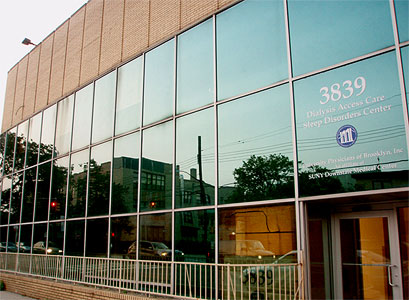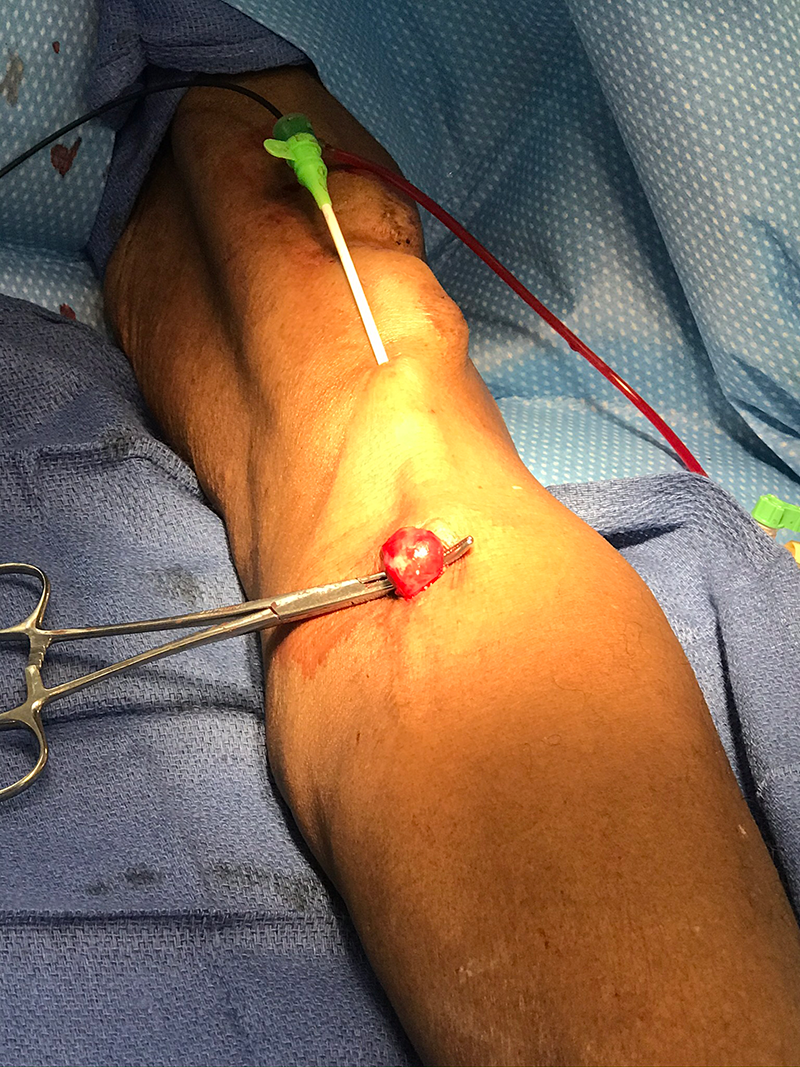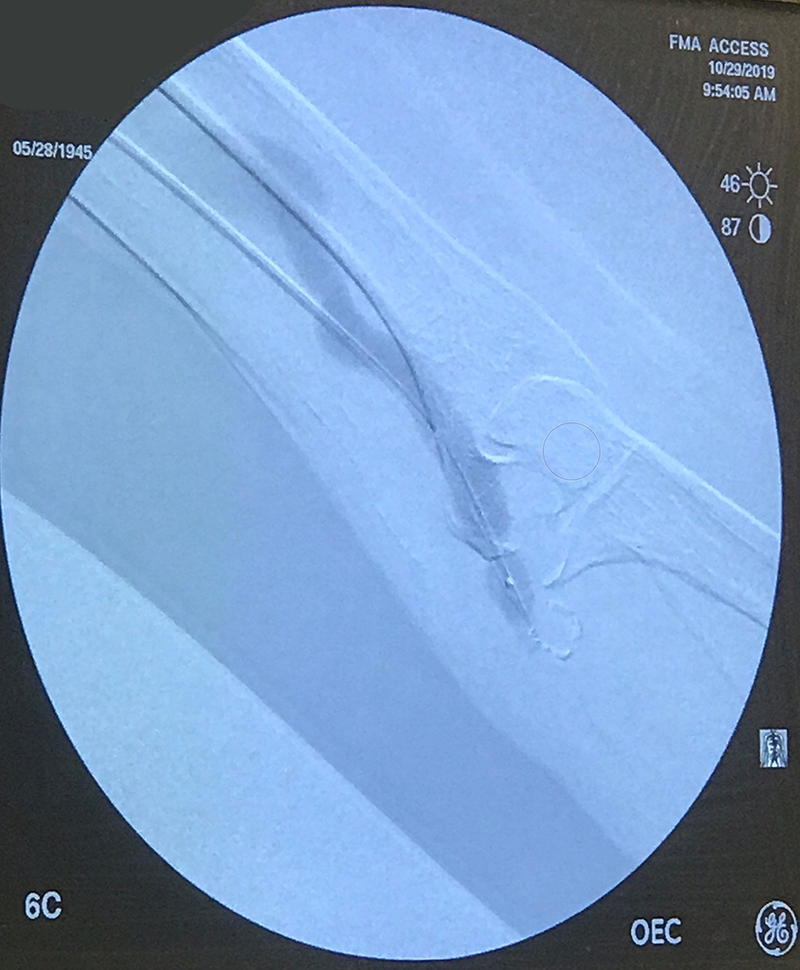The Vascular Access Center

The Division of Nephrology is proud to provide all kinds of vascular access solutions to all patients receiving dialysis under very experienced doctors at University Hospital at Downstate. The access center is open Monday through Friday and also on Saturdays specifically for emergencies. The doctors are
- Dr. Moro Salifu, MD, Director
- Dr. Arye Kramer, MD
- Dr. Dale Distant MD
The interventional rotation occurs within the main campus of SUNY Downstate Health
Sciences University. This rotation allows the fellow to focus on acute dialysis care,
home dialysis care and advanced training in vascular access care including femoral
cannulations, vein mapping, central venous catheter exchange and placement, arteriovenous
fistula creation, AV fistula angioplasty and stent placement. Fellows will master
these skills that will allow them for timely recognition and referral of vascular
access problems.
Details of the rotation: On Tuesdays, the fellow will report to the flatland vascular
access center for half a day and leave back to the hospital at noon to join attending
rounds. On Thursday afternoon, the fellow will go to Parkside to attend the home dialysis
clinic. Fellows can attend more vascular access rotation if interested.
Specific Goals & objectives
For 1st year fellows
- Learn history and physical examination of vascular access
- Learn basic differential diagnosis of vascular access pathology
- Learn details of the acute dialysis prescription and management of the dialysis patient in an acute setting
- Learn communication with referring physicians
- Learn the risks, benefits and indications for the various forms of interventional procedures
All fellows must present all patients to an attending faculty physician at each visit. The attending will see the patient and either observe the fellow with the patient or repeat critical components of the history and physical. This occurs weekly throughout the academic year.
For 2nd year fellows
In addition to skills learned in the first year:
- Refine the history and physical for vascular access
- Refine the differential diagnosis of vascular access problems to be more complete
All fellows must present all patients to an attending faculty physician at each visit. The attending will see the patient and either observe the fellows with the patient or repeat critical components of the history and physical. This occurs weekly throughout the academic year
Core competencies to be evaluated
Patient Care
- Obtain comprehensive history and physical examination pertinent to the evaluation of the acute dialysis patient, home dialysis patient and vascular access
- Accurately assess a patient for the appropriate and individualized acute dialysis prescription
- Accurately assess a patient for the differential diagnosis of vascular access malfunction
- Demonstrate the ability to recognize and manage various complications of vascular access malfunction
Medical knowledge
- Demonstrate knowledge appropriate for a general nephrologist of the following:
- Anatomy and types of vascular access
- Vascular access monitoring
- Vascular access surveillance
- Diagnosis of access stenosis
- Diagnosis of access thrombosis
- Understand indications for referral for access interventions
- Understand rationale for angioplasty and thrombectomy procedures
- Understand acute dialysis management for patients with access malfunction
- Placement of temporary and tunneled dialysis catheters
- Treatment goals for the home dialysis patient
PBPI/SBP
- Demonstrate ability to use information technology to answer questions in this rotation and ability to analyze the quality of evidence supporting interventions
- Identify patient safety issues in the dialysis unit and understand procedures in place/propose new procedures to minimize errors
- Demonstrate understanding of reimbursement for access procedures
- Understand the roles of members of the health care team treating access problems; nurses, nephrologist, dietician, vascular surgeon, etc and work effectively with other team members
Interpersonal and communication skills
- Demonstrate ability to write a coherent and useful consultation note
- Demonstrate empathy for patients with access malfunction
- Clearly and appropriately explain diagnostic thinking and management options/plans to patients and families
Professionalism
- Consistently demonstrate respect for patients, staff, and colleagues
- Demonstrate understanding of the issues surrounding informed consent for procedures Demonstrate understanding of major ethical issues in vascular access.


Dr. Salifu performing AVF banding and Dr. Sherchan 2nd year fellow assisting. Right image AVF angiogram
All vascular access procedures are covered, including:
- Angioplasty for peripheral and central stenosis of dialysis access
- Fistula maturation procedures
- Declotting /thrombectomies
- Diagnostic venograms
- Catheter placement, removals, revisions and exchanges
- Vascular mapping for access placement
- Management of steal syndrome, large aneurysms, etc
Information for Patients
The Access Center located at 3839 Flatlands Ave (Corner of Flatbush and Flatlands) is an attractive modern facility designed specifically to address all access problems.
- If you are a new patient, you need to have vein mapping done by our experienced doctors before receiving access surgery. Vein mapping, as the name implies, is a test to see the map of your veins. The test tells the doctors which veins are good enough to be used for access. This information is necessary to identify the right vein for the right surgery.
- If you already have an access, you need to be monitored periodically to check for blockages (stenosis) and if blockages are detected they need to be dilated (angioplasty) using special balloons to prevent the access from clotting. When the access clots, it is more difficult to open it up (declot or thrombectomy).
- If you have a catheter, please get rid of it by getting your vein mapping done and getting your access surgery done quickly. The more you allow the catheter to stay in your veins, the more your veins will be damaged and you will lose them and get into problems that cannot be solved easily. A catheter is meant for temporary use only until you get your access. If you have a catheter please call or ask to be referred to the center so that vein mapping and your access surgery can be done quickly.
Contact Information and for appointments
3839 Flatlands Ave (Corner of Flatbush and Flatlands)
Brooklyn, NY 11234
Web: https://www.flatlandsaccess.com/
Phone: 718-338-5026
Fax: 718-338-5029